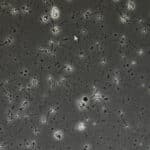My Family
When you conceive a child through an assisted reproduction treatment with donated gametes (oocytes, sperm or both) you may be wondering whether it is right to tell the child, at what age you should do it and what consequences it could have. In this post Fiammetta Grignolo, psychologist of our Psychology Unit, gives us some indications. An assisted reproduction treatment with donated gametes can be a complex process for many people. One of the most delicate phases of this experience is the decision to tell the child how he was conceived. The desire to protect the child from possible...
Read More














